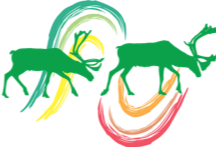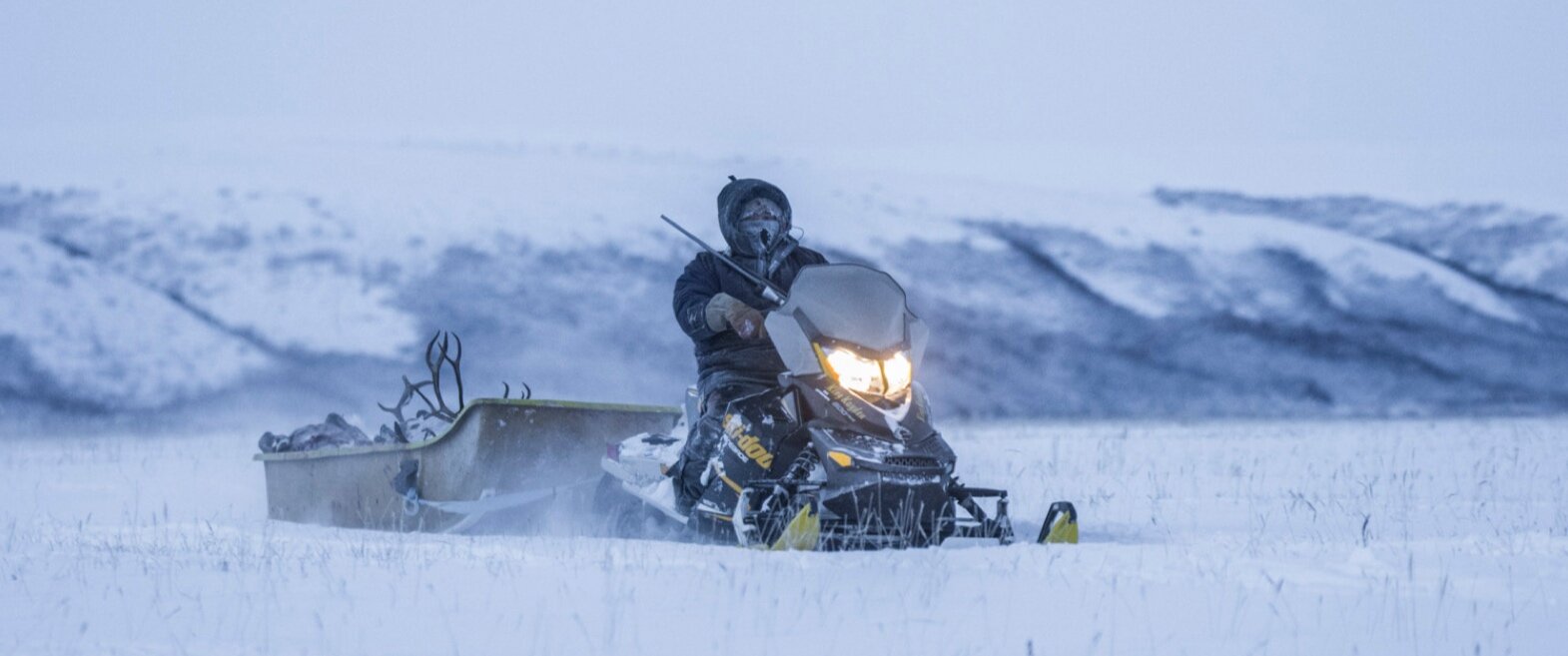Harvesting Caribou
Photo: Danny Swainson
“I was raised on the land and grew up with the caribou. I was taught how to look after my hunting and take what I have to. I was taught on the land. The caribou is a really sensitive animal and we do respect it.”
Harvesting is fundamental to the cultural, social, spiritual and economic well-being of many of the communities of the NWT and Nunavut. Traditional harvesting practices show respect toward animals and help to keep a balance between harvesters and caribou. Harvesters can play a positive role as managers of the herds by harvesting according to specific rules of use, informed by traditional methods about where, when, and how much to harvest, sharing intergeneration knowledge about sustainable use of the whole caribou, and maintaining caribou numbers within the carrying capacity of the habitat. At times when caribou are absent or in low numbers, harvesters switch to other food sources, helping herds recover.
The ACCWM aims to respect Indigenous rights while finding a balance between the resources we use today and the resources we leave for future generations. Monitoring and collaboratively regulating harvest are some of the tools used to understand and manage for caribou.
The Taking Care of Caribou plan attempts to reflect a number of shared perspectives about harvesting, such as:
Harvesting can be beneficial to caribou herds even though it directly reduces herd numbers.
Understanding the relationship between habitat and caribou numbers is a crucial part of monitoring programs.
Respectful harvesting has as role in management that may not be fully understood or agreed upon.
There are different approaches to monitoring caribou and harvesting - from informal systems developed by communities over generations of living with caribou, to more formalized harvest data collection programs as required by land claims agreements.
In all situations, there is an important role for community organizations, including Renewable Resources Councils and Hunters and Trappers Committees where they exist, in order to develop a strong approach to monitoring.
Photo: Lennie Inglangasuk, "Caribou Passing Through", from the Inuvialuit Cultural Centre Digital Library
“My grandfather says that we were once caribou and caribou were once people. We switched when there was starvation. There are a lot of stories. In the past, not too long ago, some years there was no caribou, no meat.”
When population levels are low, the ACCWM management authorities can recommend harvest regulations, including total allowable harvests and sex-selective harvesting. When conservation concerns are present, total allowable harvest levels are determined and allocated to promote shared use of each herd by all the communities who depend on it.
Harvest regulations are decided upon by each land claim management authority, with their respective community consultation processes. For more information on harvest and harvest regulation, please see the Resources page or contact your local management board/council. A summary of hunting regulations in the NWT can be found here.
2021-2022 NWT Harvest Zones
The following table and map show the harvesting zones in the NWT. Indigenous harvesters should contact their local Hunters and Trappers Committee, Renewable Resource Council or regional ENR office to clarify their rights and responsibilities regarding caribou harvesting in each zone.
Starting January 1, 2020, all Resident and Non-Resident hunters are required to take government-issued Hunter Education training prior to being issued a hunting licence in the Northwest Territories (NWT), under the Wildlife Act. Certain hunters, including Indigenous harvesters, are exempt from the course, but the free online course is a valuable resource that is recommended for everyone, regardless of experience level.
Map created by GNWT; Adam Thom



